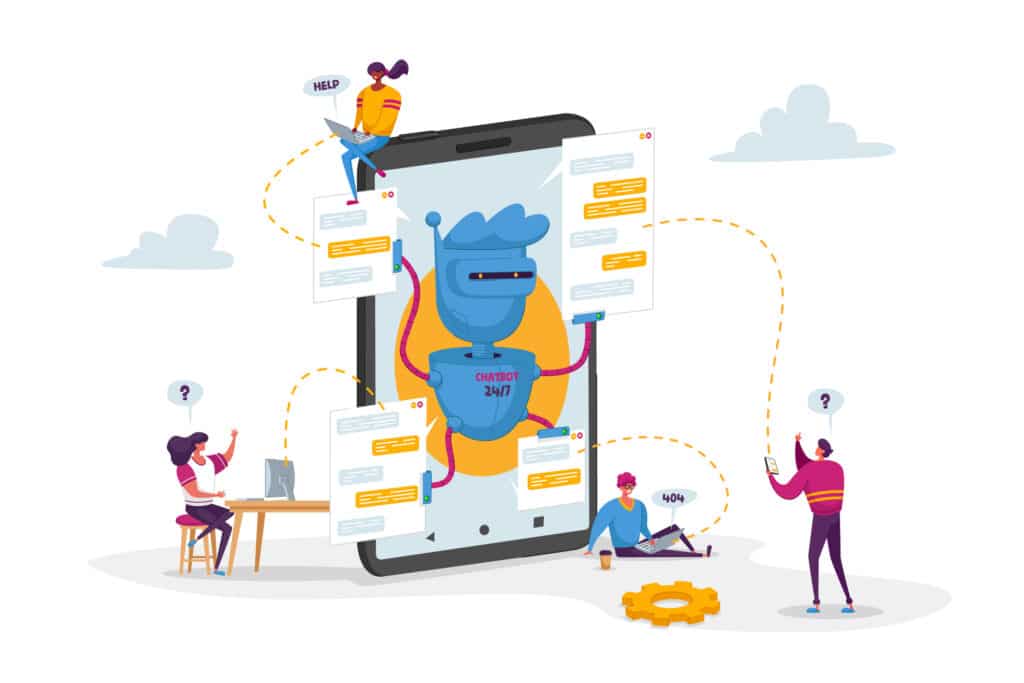How to Use AI Ethically for Content Creation

Generative AI tools – from ChatGPT to image generators like MidJourney – have become go-to resources for busy content marketers. According to a SurveyMonkey report on how marketers use AI in 2024, 88% of marketers rely on AI in their current jobs. Of those, 93% use it to generate content faster.
But while AI may allow you to produce copy, images, or videos simply by typing instructions into a prompt, it raises ethical issues. Content marketers’ top concerns about AI-generated content are:
- Reliability of information
- Originality of content
- Biased content
- Job replacement
If you’re concerned about the impact AI could have on your brand, read on to learn how to use AI ethically to create content.
Ethical Issue #1: Reliability
AI doesn’t always produce accurate results. There have been well-publicized cases of trouble caused by AI “hallucinations,” from a lawyer who submitted a brief citing fake court cases to a news network publishing AI-drafted stories with significant factual errors.
As a result, consumers don’t trust AI. In a 2024 Hootsuite survey, 62% of consumers said they are less likely to engage with and trust content if they know it was created by AI.
To keep your audience’s trust, make sure any content you produce using AI goes through a thorough review and fact-checking process. No matter how polished it seems, AI-generated content needs a human touch before publication.
Ethical Issue #2: Originality
No matter how a piece of content is created, it should feel authentic to your brand. Does your organization have a written content strategy and style guide? If not, it should. During your review process, evaluate the AI-generated content to ensure it’s aligned with your goals and edit it to match your style, voice, and tone.
Also, be aware that AI applications may pull from copyrighted source material, sometimes nearly verbatim. Your fact-checking should include a search for content with similar headlines or wording.
To help avoid running afoul of copyright or privacy issues, avoid prompts referencing specific people or intellectual property. Do not publish images using a specific person’s likeness.
Consider using an AI application (such as Adobe Firefly) that is committed to training its model with content that does not infringe on copyright and intellectual property rights.
Ethical Issue #3: Bias
AI-generated content reflects its training materials. If the initial data lacks diversity or contains biases, that will be reflected in the output.
Proactively work to identify any biases in your AI-generated content, such as copy or images that promote stereotypes. It helps to develop audience personas so you know your audience in all their diversity and ensure no segment of your audience is excluded. When you enter a prompt in your AI tool, describe your target audience for a more tailored result.
Ethical Issue #4: Job Replacement
Concerns about job security are growing as AI gains popularity. In a recent survey by Influencer Marketing Hub, almost 60% of marketers said they fear AI could jeopardize their jobs, up from nearly 36% in 2023.
However, experts agree that AI works best when paired with human expertise. Rather than replacing a content writer or social media manager, AI may allow the people in these roles to work more efficiently and focus on high-priority initiatives.
Those high-priority initiatives may include working with writers, artists, illustrators, or photographers for special projects. There will always be instances when the touch of a real, creative person yields a better product, and in a world where AI is common, that human touch is all the more valuable. Consider making the most of these instances by spotlighting the creative person behind the work. Is the artist or author a member of your community, or do they have a personal connection to the topic? Highlighting that will make your content more impactful and show that your organization cares about your community.
Develop Your AI Guidelines
You want consumers to trust your content. So take a page from news organizations and create an AI ethics policy for your content team. Your policy should spell out acceptable uses of AI (e.g., brainstorming, content planning, article outlines, first drafts) and what is unacceptable (e.g, manipulating photos, ready-to-publish content).
Be sure to get input from your team on how they’re using AI — and how they’d like to — as you draft these guidelines.
Once you have a policy to use AI ethically, offer training for your staff and share it with any freelancers or contractors who create content for your organization.
Finally, keep in mind that the AI landscape is constantly changing. You’ll need to continuously refine your process and reevaluate the AI applications you use.
Ethical use of AI in content creation is not just the right thing to do, but it also achieves the best results for your organization and your audience.
Looking for guidance on balancing innovation with effective and ethical content creation? Reach out to our content experts at BackPocket.
Michelle Jackson Named WICMA’s Content Marketer of the Year
We’re beyond excited to share that our very own Michelle Jackson, Chief Strategy Officer at BackPocket, has been named Content…
How Our Start-up Agency Broke Into AI Overviews Without Paid Tools
Fresh out of San Diego and the 2025 Content Marketing World, one thing was crystal clear to me (and probably…
The Wild West of Content Optimization: Why I’m All in on AEO and GEO
Over the last six months, I’ve found myself deep in what feels like the wild, wild west of content optimization:…
How to Find the Right Content Strategy Agency
Great content marketing starts with a solid game plan. That’s where a content strategy agency comes in. They don’t just…
How Content Marketing Can Help Small Businesses
There’s no sugar-coating it: When you’re operating a small business, it’s next to impossible to match — or even come…
5-step Content Audit Checklist [With a Template!]
A cornerstone of any powerful content marketing strategy begins with a comprehensive content audit — a deep dive into what’s…
What Content Marketing KPIs Should You Track?
It’s no secret that many people are drowning in data. And for content marketers, too much data is just as…
How to Create a Content Measurement Framework
When it comes to consistent, effective content marketing measurement, the data doesn’t lie. The Content Marketing Institute’s B2B Content Marketing…
Content Strategy vs. Content Marketing
Content strategy and content marketing. You no doubt have heard of them and know that each is essential to helping…
The 7 Steps to Plan a Content Strategy
Your blog started with good intentions. Boost SEO, check. Get more engagement, check. But somewhere along the way, things got…









